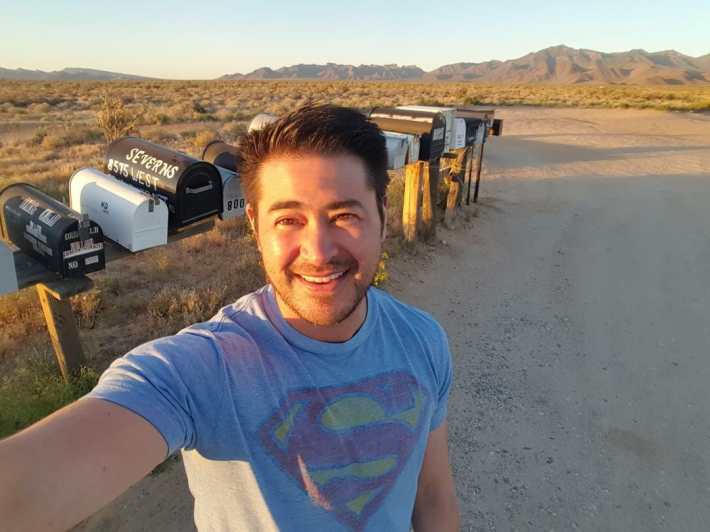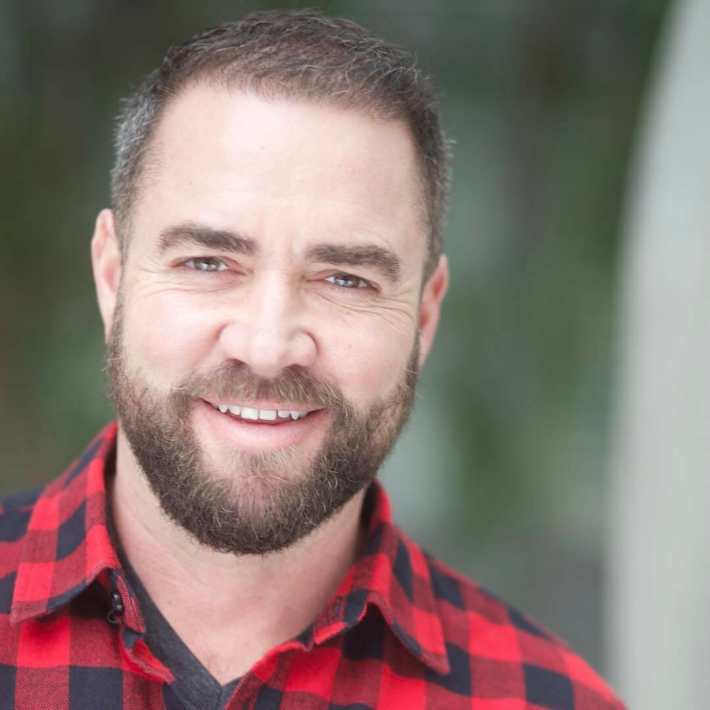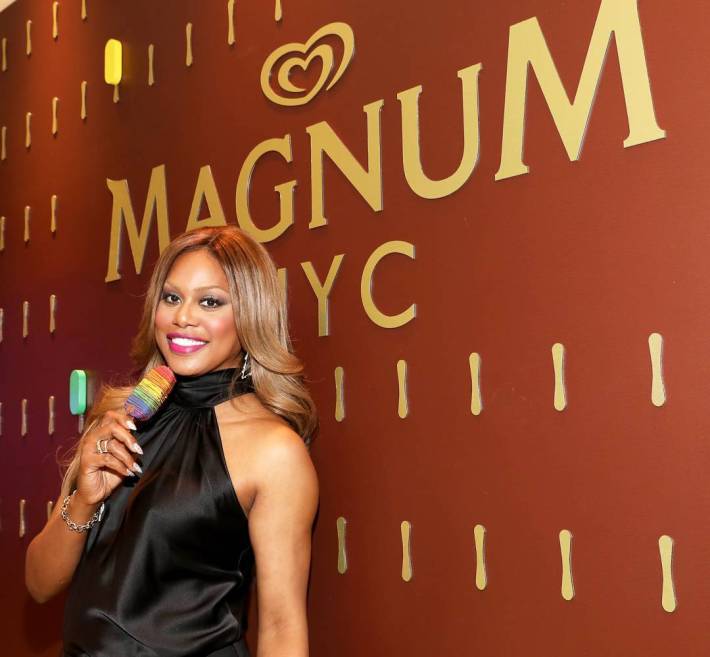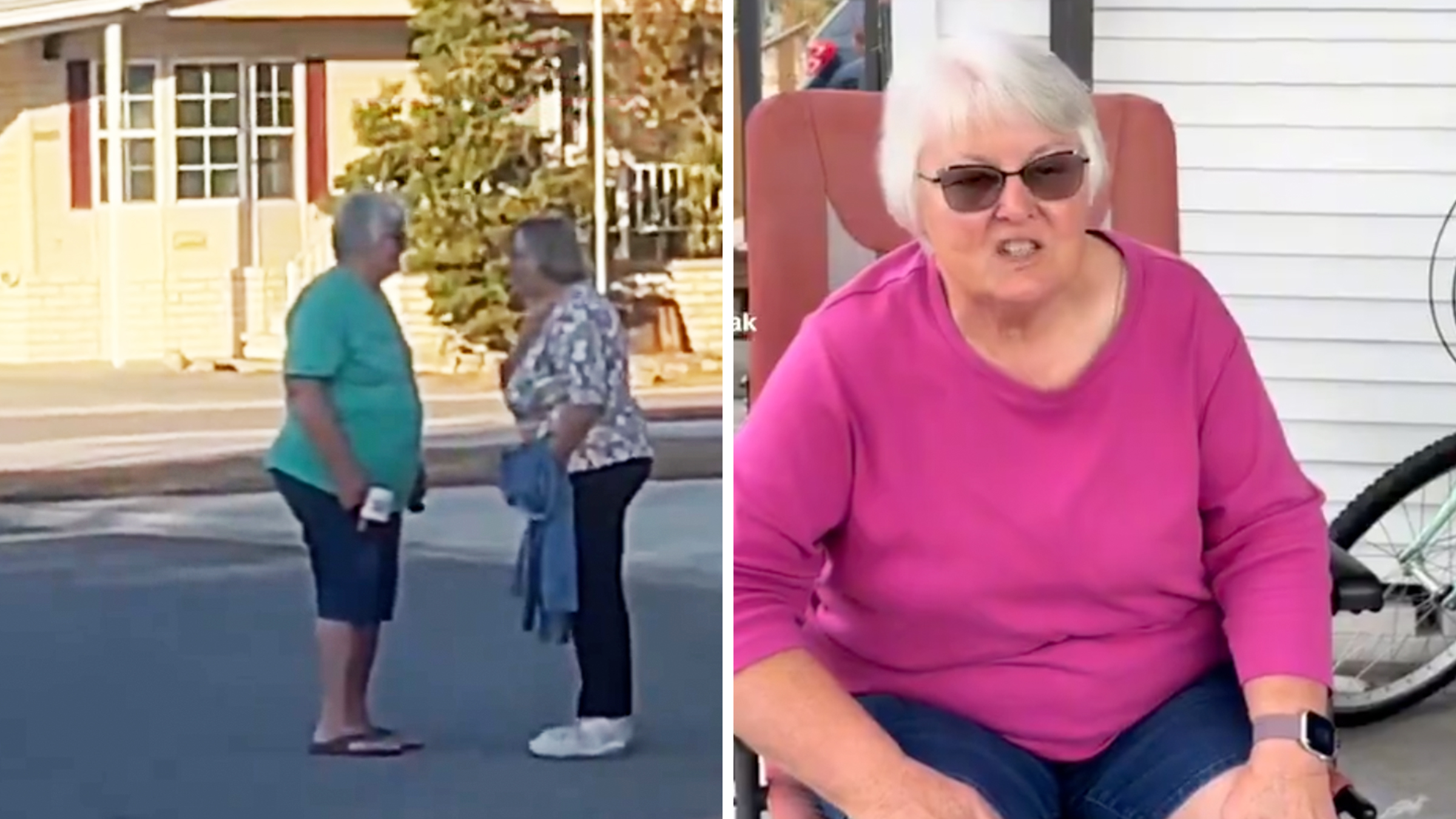"Basically, my soul is like male," Jake Zyrus told Oprah Winfrey in 2014, then identifying as a lesbian. "But I'm not going to go through that stage where I change everything."
Three years later in June 2017, Zyrus changed his name to Jake Zyrus online and officially came out as transgender. The change brought about massive support across the internet for the former Glee star, as Zyrus joined the ranks of such transgender celebrities as Janet Mock, Ian Harvie, and Laverne Cox.
Of course, Zyrus isn't alone by any means. Trans celebrities are on the rise, and they're more prominent than ever.
That's because transgender representation is increasing in media, and there are plenty of trans actors, musicians, comedians, and entertainers out there making their work known. Other times, transgender people find themselves thrust into the spotlight thanks to their extraordinary stories. Take Chelsea Manning, America's most controversial whistleblower in the nation's history. Being a transgender woman most certainly changes the mainstream discussion on her actions and treatment in prison.
Of course, there are too many trans celebrities out there to list. But here are a few out, open, and proud activists you should know about.
Transgender celebrities
1. Janet Mock

Janet Mock is one of the most famous transgender women of color in media today. First entering the world of journalism as a staff editor for People magazine, in 2011 she came out as transgender for women's magazine Marie Claire. Mock has since hosted the MSNBC interview series So POPular!, featuring such popular figures as Lena Dunham and Amber Rose. And she's also served as a producer and interviewer for the HBO documentary The Trans List, exploring the lives and times of popular trans celebrities.
"As long as people are targeted because of their identities, our politics and our movement and our actions need to be just as targeted," Mock told Elle in an interview for The Trans List. "We need to be exacting about who is most vulnerable, who is not being served. It's the poor, the incarcerated, the condemned, the feminine, the trans, the queer. It's the uneducated. That's what we need to center in our politics. And when we center our most vulnerable, we actually are a stronger society."
Alongside her work in entertainment media, Mock came into critical acclaim with her memoir, Redefining Realness: My Path to Womanhood, Identity, Love & So Much More. Released in 2014, Mock's book opens up about her transition as a transgender woman, her life struggles from a young age, and her growth into the person she is today. Redefining Realness is considered a staple in trans non-fiction literature, showing how transgender writers can talk about their pasts in honest and thoughtful ways.
2. Jen Richards

Jen Richards broke out into the spotlight with her 2016 webseries Her Story, a romantic drama exploring transgender women's romantic lives in a hostile and transphobic world. But Richards has been working for years as a trans activist in entertainment, writing several editorials on trans representation in media, and hosting the Trans 100 project celebrating 100 influential trans figures in the community.
Most notably, Richards reached popular and critical acclaim as physical therapist Juliette on CMT's series Nashville. In an interview with NewNowNext, Richards praised the show's writers, pointing out how her character's transgender history is handled through subtle and layered dialogue that isn't too explicit. She believes that, through open and visible representation on TV, trans actors and actresses can change the public's perception of transgender women.
"The first trans death of 2017 was a young, black trans woman in Mississippi. One of the ways we can combat things like H.B. 2 in North Carolina is by getting trans people on television," Richards told NewNowNext. "That law is only possible by peoples’ projections of their own fears. They buy into this image of some burly predator who throws on a wig and says they’re a trans woman and can get access to a women’s bathroom. Which is fiction for people like me, who have been invisible."
3. Laura Jane Grace

Frontwoman for the band Against Me!, Laura Jane Grace has been making headlines for years as an out and open transgender punk rock musician. After initially coming out to her band and the public in 2012, Grace's story sparked public awareness for trans rights in punk rock, with many musicians openly supporting Grace through her transitioning. Since then, Against Me! has released the studio album Transgender Dysphoria Blues, discussing the gender dysphoria and disassociation Grace felt with her body before coming out.
Years later, Grace has continued to work as an LGBTQ activist both inside and outside of the music industry. She also released a memoir in 2016, Tranny, exploring her coming out as largely inspired through her journal entries. In an interview with Rolling Stone, Grace sheds light on her transitioning, calling it a process that changes and grows with the person undergoing gender transitioning.
"This idea of what you're going to transition into or who you're going to be, that's not how you're going to end up," Grace told Rolling Stone. "You don't know who that person you're going to transition into is. You just have to see."
4. Thomas Beatie

American transgender activist Thomas Beatie shows that there's more than one way to become a father. Beatie hit national fame after a report for the Advocate revealed that he had faced discrimination across the country for being a pregnant man. Doctors objected to having him as a patient, citing religious reasons, and Beatie's prenatal care quickly became difficult. But as mainstream news outlets began covering Beatie's story, his pregnancy gave rise to national and international interest in transgender parenthood, paving the way for a larger discussion on fatherhood and pregnancy for transgender men.
Beatie's story has also introduced another important issue for the trans community: transgender parental rights.
After Beatie and his former wife Nancy began divorce proceedings, Beatie's relationship with his wife and his children created a national precedent for transgender child custody cases. A messy and complicated proceeding with the Arizona court system followed, which repeatedly wavered on Beatie's gender identity as well as his relationship with his children. By 2013, the courts refused to allow Beatie to separate from his wife, citing Beatie's transgender status to claim that the marriage was actually a "same-sex" relationship. At the time, Arizona did not allow same-sex marriage, so ironically the judge ruled that Thomas Beatie was in a same-sex marriage and thus could not get a divorce for a marriage that the state did not recognize.
The ruling was riddled with transphobia. But in 2014, the Arizona Appeals Court ruled that the Beaties' marriage was legitimate, and Thomas Beatie and his ex-wife Nancy were allowed to finalize their divorce. Both Beatie and his ex- have equal custody rights. While trans activists still have a lot of work to do before transgender parenthood is widely respected across the U.S., Beatie opened up a legal precedent that legitimizes trans parenthood by treating transgender fathers as legitimate parents.
5. Ian Harvie

Transgender comedian and actor Ian Harvie has starred in Amazon's series Transparent as Dale for a while now, but Harvie has been performing stand-up since 2002. Touring with Margaret Cho and appearing in the LGBT talk show The Ian Harvie Show, Harvie has since featured in shows from Roadtrip Nation to Young & Hungry.
Harvie is different from other standup comedians. He's open about everything in his stand-up, from using restrooms to getting top surgery, from his sex life to being trans. As an out and open trans man, Harvie has worked as an activist for trans representation in entertainment for years, both in front of the camera and behind the scenes. He thinks that producers should employ more trans people to tell trans stories and that by including trans people in productions, transgender writers, actors, and editors can create better stories to share with the world.
"I think that people are understanding that they must include trans people in the storytelling behind the camera, in front of the camera, in the writer’s room, producer, and all aspects… because it’s passing through so many hands before the consumers actually see it and having us involved in the storytelling is gonna get the story right," Harvie said during an interview with the Mary Sue. "When you get the story right, it can be lifesaving so representation matters."
READ MORE:
7. Caitlyn Jenner

Highly controversial both inside and outside the trans community, Caitlyn Jenner is one of the most prominent transgender celebrities in the United States. And for many, her story features the first compassionate coverage of gender transitioning in the American mainstream media.
Jenner first came out in 2015, during an interview with Diane Sawyer on ABC's 20/20. She revealed that, from a young age, she had dealt with gender dysphoria and identified as a woman. Back in the '90s, Jenner had experimented with her gender identity and even began hormone replacement therapy, but she stopped after her relationship with Kris Kardashian grew into marriage.
Since coming out, Caitlyn Jenner has constantly been in the public spotlight as a visible trans woman. And for many Americans, Jenner is also their first exposure to gender transitioning and transgender women. Vanity Fair ran a feature story on Jenner at the time, she received an ESPY award for her bravery, and activists (initially) turned to Caitlyn Jenner as a role model for the trans community. Jenner didn't bring trans issues into the mainstream, but her transitioning certainly cemented their presence.
Since then, Jenner has stirred some major disagreement among both LGBTQ Americans and outsiders. Transgender Americans have largely criticized Jenner for her Republican leanings, including her support for Ted Cruz and her bizarrely apathetic gay marriage statement on Ellen. More recently, Jenner received bipartisan scorn after joking about the Alexandria GOP shooting that left Rep. Steve Scalise in critical condition. But the LGBTQ community has come to her support in multiple occasions, including defending Jenner after she was harassed in the United Kingdom over her gender identity.
America may remain mixed on Caitlyn Jenner, but when it comes to trans celebrities, she's out, proud, and isn't going away anytime soon.
7. Laverne Cox

Laverne Cox may just be the most famous transgender actress in TV and film today, thanks in part to her role on Orange Is the New Black. She's also the first openly transgender person to receive a Primetime Emmy nomination in history.
Cox stars as Sophia Burset in Orange Is the New Black, a transgender woman sent to prison for credit card fraud while attempting to fund her gender transitioning. For many viewers, Burset was the first sympathetic trans character ever seen on TV. Since then, Cox's career has grown, and she's starred in a variety of projects and series, from CBS's Doubt to Fox's remake of The Rocky Horror Picture Show.
Although most Americans recognize Cox through her appearance on Orange Is the New Black, Laverne Cox has been cast into a variety of shows and movies since first appearing on the show, from Paul Weitz's comedy-drama film Grandma to the upcoming drama film Freak Show. She also ran, produced, and starred in her own show, TRANSform Me, in which three transgender women give a cisgender woman a makeover.
With each new show, Cox has become a more visible openly transgender woman in media. And offset, Cox works on behalf of transgender women of color across the U.S., raising up trans voices and making room for visibility in a world where most trans people of color are looked at with disdain and scorn. By far, she is one of the most important trans women actresses in the world to date, along with one of the most important transgender activists of color.
Cox also agrees that transgender women should primarily play trans roles because trans characters can help cisgender viewers build empathy for transgender women. "My experience as a trans woman playing a trans character is that I have found that audiences not only have empathy for the character that I play but they find themselves having empathy for the actor who plays that character," Laverne Cox said. "And I think there’s a lot of evidence that this moment happening with me and ‘Orange’ has created an enormous amount of social change. Right? I mean, like just look at the resume! The proof is there."
8. Chelsea Manning

Easily one of the most internationally famous transgender activists in the United States, Chelsea Manning rose to fame as a whistleblower that shed light onto civilian casualties amassed during the Iraq War. Imprisoned for years, her sentence was later commuted by President Obama, and she was released in May 2017. But during her years in military prison, Manning came out as a transgender woman and began working as an activist for trans rights for both incarcerated trans people as well as trans citizens across the U.S.
An interview with the New York Times reveals the turbulent years Manning spent in prison, discovering her identity while fighting to stay alive in grueling and isolating conditions. She opened up about some of the struggles she experienced on hormone replacement therapy, including the emerging and conflicting emotions she felt as estrogen began giving her a wider range of feelings.
"I’d built all these defenses and walls around my emotions over the years, since being a teenager. When my testosterone levels plummeted, I suddenly became more vulnerable emotionally. I could no longer just hide my emotions: I had to deal with them, usually right there and then," Manning told the Times. "Good ones, like confidence, and a sense of connection with my friends, mixed in with a lot of bad ones, like doubt, loneliness, uncertainty and loss."
Manning's activism not just gives hope to young trans people, but her story also sheds light onto some of the haunting experiences that transgender women face while incarcerated. And they look at Manning with hope for the future, showing how transgender women can survive even the most oppressive conditions.






